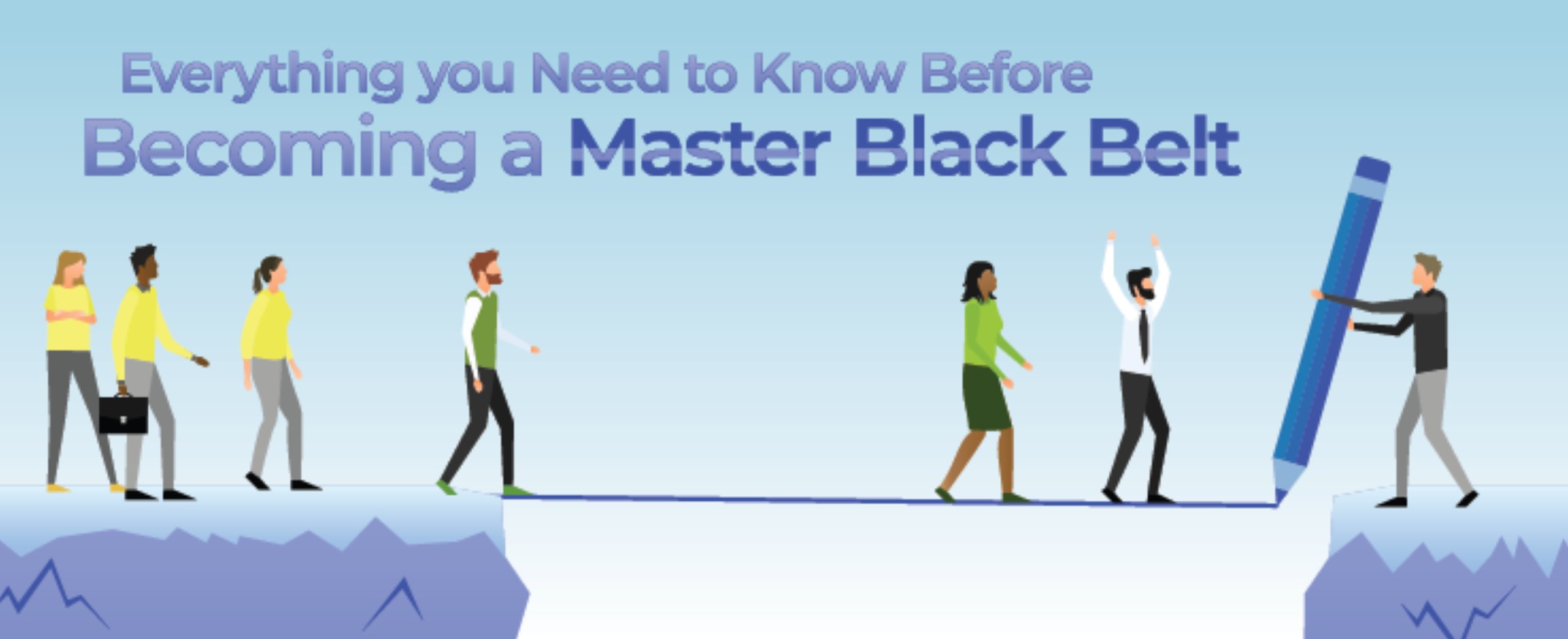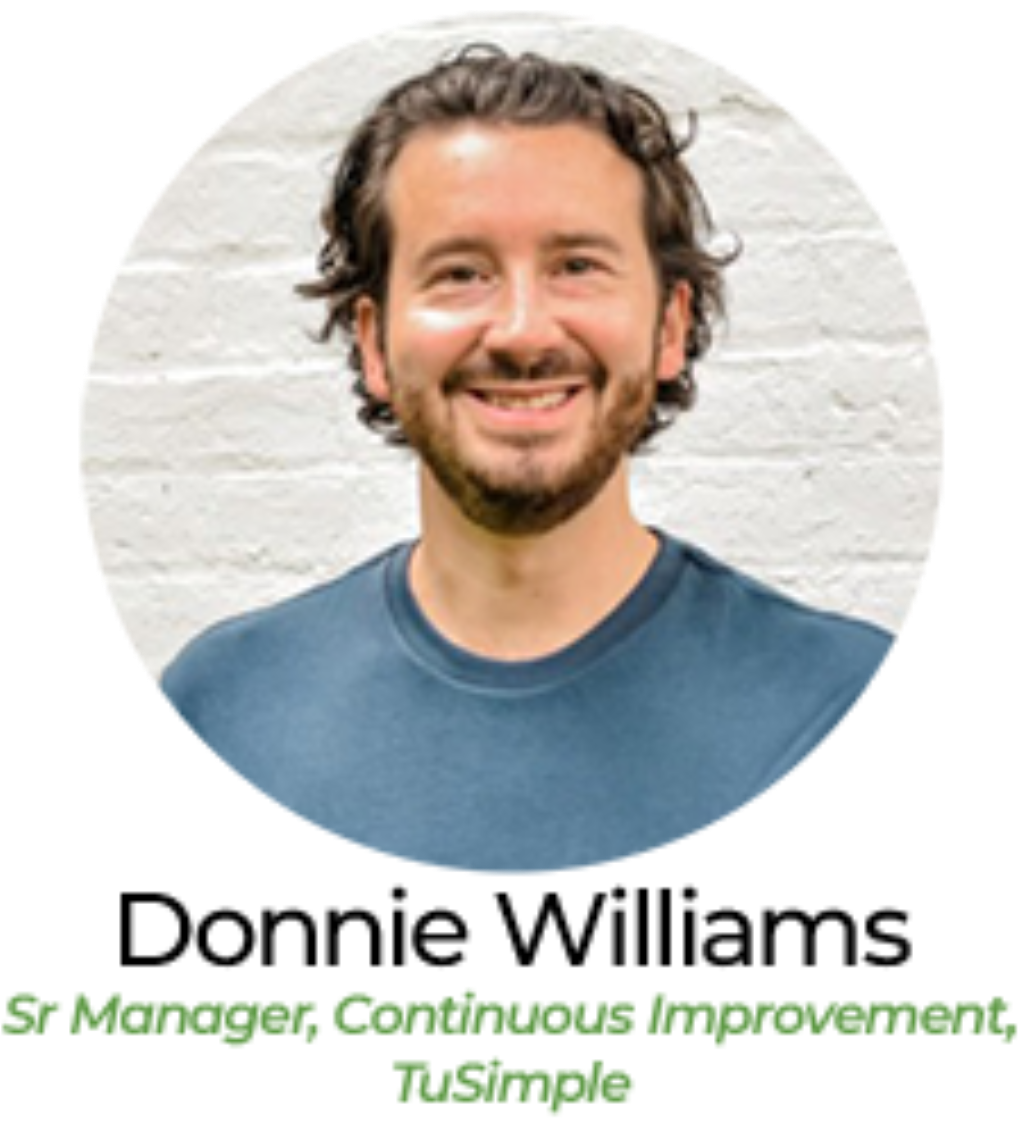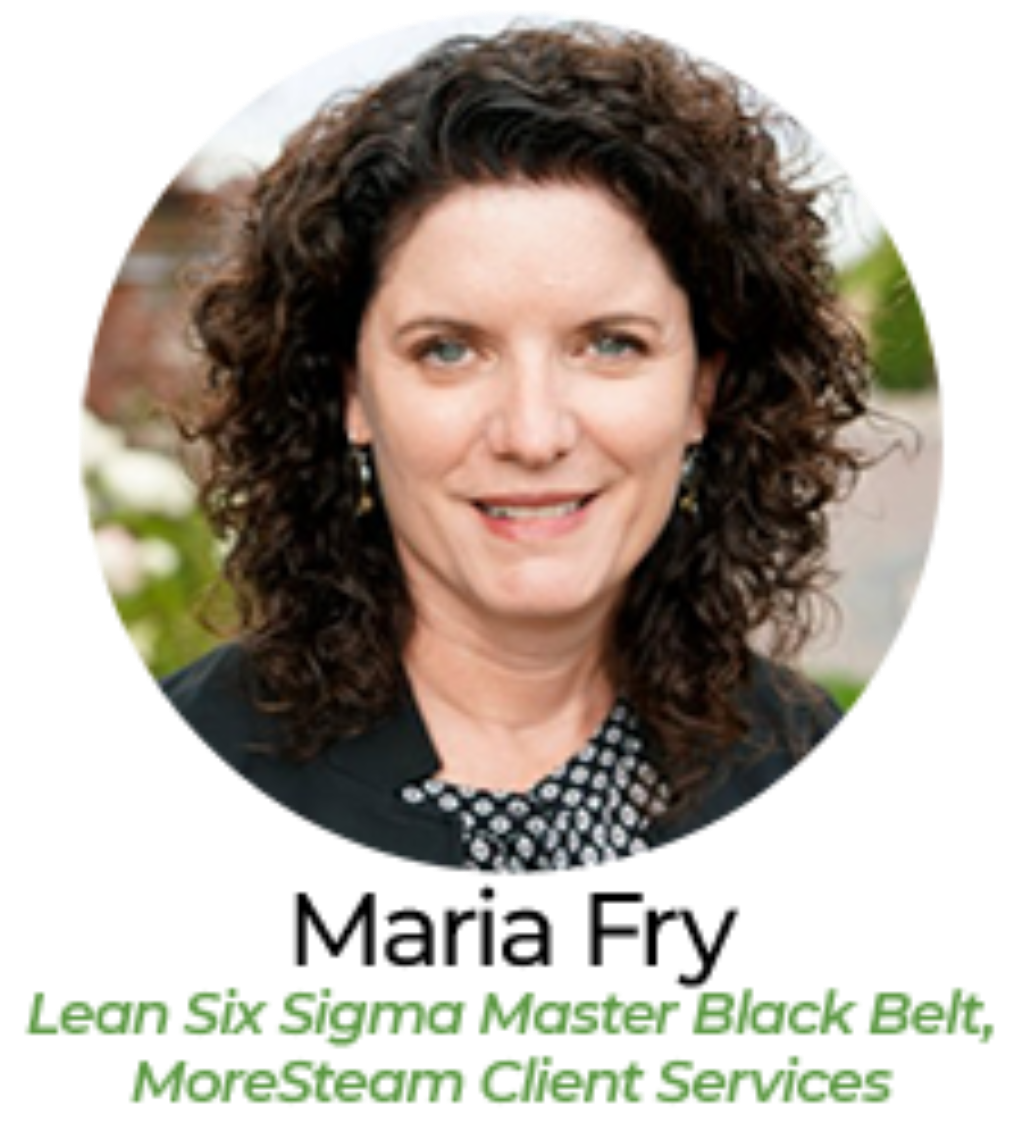
Should I Become a Master Black Belt?
October 19, 2022Becoming a Lean Six Sigma Master Black Belt is the pinnacle achievement for continuous improvement professionals. But is it the right choice for you? If you’re passionate about Operational Excellence and eager to take on a leadership role in aligning your organization’s strategic goals with impactful improvement efforts, the answer is likely a resounding 'YES!'
Master Black Belts are the top coaches, leaders, and motivators in Lean Six Sigma, driving cultural and strategic change.
Earning an MBB certification requires rigorous training, real-world experience, and project mastery.
An MBB certification opens diverse career paths, blending technical expertise with leadership and mentorship skills.
Becoming a Lean Six Sigma Master Black Belt is no small feat. It requires significant time, effort, and foundational experience. Many programs, including MoreSteam's Master Black Belt Certification, require prior Black Belt experience before you can pursue this advanced designation. But more than experience, becoming a Master Black Belt demands drive—a passion for leadership, a commitment to mentoring and coaching, and the ability to champion change at the highest levels of an organization.
So, what does it mean to become a Master Black Belt? What does the certification process entail? And what can you expect from your career once you achieve this pinnacle of Lean Six Sigma expertise?
To answer these questions, we sat down with several of our recent Master Black Belt graduates and one of our Master Black Belt instructors. They shared insights into their training experience, the motivations behind their journey, and what future candidates can expect if they follow a similar path.
What is a Master Black Belt?
A Master Black Belt is the highest-level certification and role in Lean Six Sigma, representing mastery in continuous improvement methodologies and leadership. Master Black Belts are experts in using advanced problem-solving techniques, statistical tools, and Lean Six Sigma principles to drive strategic organizational change.
More than just technical specialists, Master Black Belts are leaders, mentors, and coaches. They play a pivotal role in guiding Black Belts and Green Belts through improvement projects, ensuring alignment with the organization’s strategic goals. Their expertise enables them to tackle the most complex process challenges while fostering a culture of continuous improvement.
In addition to solving high-level problems, Master Black Belts act as a bridge between leadership and project teams. They are responsible for identifying cross-functional improvement opportunities, coordinating efforts across the value stream, and communicating the impact of Lean Six Sigma initiatives to stakeholders at all levels.
What's the Difference Between a Black Belt and a Master Black Belt?
The difference between a Black Belt (BB) and a Master Black Belt (MBB) can vary depending on the organization. However, a Master Black Belt typically plays a more strategic role. They align an organization’s goals with its Operational Excellence initiatives, acting as a bridge between senior leadership and the continuous improvement (CI) team. In contrast, Black Belts spend the majority of their time executing projects on the ground.
Both MBBs and BBs are expected to mentor and coach upcoming belts, but MBBs often design and structure the training programs that support these roles.
Here’s how some of our Master Black Belt graduates describe the difference:
Donnie Williams: "I would say strategic projects and capability development (fishing and teaching others to fish). In the BB role, someone is telling you where to fish. 'Go fix this; go train these specific people.' And in the MBB role, there's an unstated but super critical responsibility where you're having conversations with upper management, describing what needs to be fixed that's critical to the business as a whole, and then going and doing that. The elevation from BB to MBB is often centered around the strategic level. First, identifying critical improvement opportunities with executive leadership, next helping them prioritize the opportunities, and finally leading teams to execute on those priorities.
The elevation from BB to MBB is that strategic layer of having those communications with executive leadership, helping them prioritize what needs to be fixed, and then having the discussions of the benefit realization of what needs to be fixed."
Rajanikanth Pagadakatalu: "Specific to my organization, Black Belts handle projects, [whereas] MBBs are consultants for various programs & coach Black Belts."
Jennifer Cromey: "Black Belt and Master Black Belt concepts are based on the same body of knowledge. It's demonstrating mastery of the skills through real life experiences that sets them apart. Go for your MBB certification to showcase your hard work and recommit taking your skills to the next level.
Not every job needs a Master Black Belt. You could really thrive at having your Black Belt in many career aspirations. So it's really just where you want to take how you perceive your role and your academic [pursuits]."
Master Black Belts are often seen as the architects of an organization’s continuous improvement initiatives, while Black Belts are its builders. Whether or not you pursue an MBB certification depends on your career goals and passions. If you aspire to lead strategic change and mentor the next generation of Lean Six Sigma practitioners, the Master Black Belt role might be the perfect fit for you.
How Does a Master Black Belt Spend Their Time?
A Master Black Belt’s responsibilities vary depending on the organization and its process improvement initiatives. While some MBBs may focus heavily on mentoring and coaching other belts, others might take on a more strategic role, working closely with leadership to guide high-level decisions. In many cases, MBBs balance these responsibilities, tailoring their approach to the unique needs of the organization.
Here’s how a few Master Black Belt graduates describe their roles:
Donnie Williams: "My job is about 80% project delivery and 20% capability development. I'm doing projects that the company needs done immediately. Measuring how much things cost and then coming to a uniform agreement across the company on said cost. This is all teeing up for cost reduction; now that we have this entire methodology around how much [something] costs and everyone agrees to that, then we can start removing as much cost as possible."
Rajanikanth Pagadakatalu: "I am an LSS specialist in managing enterprise-level programs. Right now, I am the LSS consultant for five major initiatives as my organization plans to revamp the IT infrastructure by bringing in ERPs."
Jennifer Cromey: "At the MBB level, you are able to bring a more strategic approach. In my role(s), I work with leadership on large cross-functional projects to make the connections between people, process and technology to drive business goals. Coaching and teaching LSS principles to anyone and everyone is also at the core of my purpose."
Maria Fry, MoreSteam Instructor: "In really good organizations, they are involved in the strategy development process. Then go and do hoshin planning; they look at where we need help (is it in expense reduction? Is it with raw materials? Is it business efficiency?)
They target the areas of the organization where we are either really not meeting the target, and we can bring us up to the level, or they look for opportunities to get there. So you use the strategies to deep dive into where we have opportunities in conjunction with the other leadership in the organization."
A Master Black Belt’s time is spent where it matters most—whether that’s delivering immediate project results, coaching teams, or working with leadership to shape long-term strategies. Their versatility allows them to adapt to the organization’s needs, driving impactful results across people, processes, and technology.
The Value of a Master Black Belt
Master Black Belts bring unique value to organizations by bridging strategy and execution, mentoring others, and fostering collaboration across teams. Here’s how a few MBBs describe their contributions:
Rajanikanth Pagadakatalu: "Specific to my organization, Master Black Belts are seen as leaders, consulted for complex topics/issues & are expected to coach other BBs to get them to the MBB level."
Jennifer Cromey: "Individuals typically tell me that they value my 'way of thinking.' I have realized over the years, that not everyone thinks the way that I do and how powerful it can be when harnessed in the right way to connect different teams, technologies, and processes. The MBB mindset allows visibility of the big picture along with the ability to break down and make connections on how it all works together in a meaningful way."
Maria Fry, MoreSteam Instructor: "[There is a] linkage to the leadership. Where I've seen it done very effectively from a strategy deployment standpoint, we hear, "what are our top five strategy goals for this year from C-Suite?"
Either we're involved in that process, or they give them to us. Then we go to the next level of leadership and say, 'okay, here's our targets. Let's brainstorm. What are our opportunities?
Go talk to your group and bring us back a list of twenty things that we can do about this'. The Master Black Belt helps categorize [them].
[For example], this one's a 'just do it,' this one is a Black Belt level project, who can we assign to that? This one is a yellow belt [etc]. Basically, we label projects and assign resources to go attack those and get the deliverables we need to meet that strategy goal."
Master Black Belts are invaluable in helping organizations bridge strategic goals with actionable improvement efforts. Their ability to think strategically, mentor teams, and connect processes ensures that Lean Six Sigma initiatives drive meaningful results across all levels of the organization.
Master Black Belt Certification: What Can You Expect?
Earning a Six Sigma Master Black Belt Certification is a challenging yet rewarding journey. While the specifics depend on the program you choose, most certifications include a combination of in-person or online training, exams, and the submission of a project portfolio demonstrating both technical mastery and soft skills as a coach.
What to Expect from MoreSteam’s Certification Process
- 71 hours of various eLearning coursework
- 1-Week In-Person Advanced Statistics & Leadership Workshop with an exam
- 1-Week In-Person Advanced Lean & Finance Workshop with Exam
- A final oral interview defending your Lean Six Sigma project or thesis in front of MoreSteam staff
Insights from Graduates:
Donnie Williams: "It's your typical five classes, two in-person, three online, and a couple of exams. All of that is child's play - you go, show up, study, and do your thing. But I think that the most rigorous and difficult part (which has helped me a lot in interviews) is the actual portfolio review process. [It involves] five projects that you lead with specific tools that you have to 'check the box' on, and then ten projects that you coach.
It gives you the value of the certification because it's not just something that's handed out but actually finding work that fits the boxes where you need to use those tools in an environment that those tools aren't really designed for. The actual portfolio review process, both doing the total of fifteen projects but then also defending it with the MoreSteam staff, was challenging, but it made it so that in future interviews, I could describe the certification process in rigorous detail."
Jennifer Cromey: "Your day-to-day work should be your project base. Find a happy medium [with your projects]. If you're lacking some of those specific projects, work with your manager to make sure you're focusing on that project to get that in your portfolio without adding additional hours to your [work] day.
For the two weeks' time that you need for your training, it's a management system. You need to talk to your leadership and tell them how much of an investment this really is, not only for yourself but in the company; making that investment to have that skillset on the team is very valuable."
Is a Master Black Belt Certification Right for Me?
Deciding whether to pursue a Master Black Belt (MBB) certification is a deeply personal choice that depends on your goals, experience, and passion for continuous improvement. Here’s what some experienced Lean Six Sigma professionals have to say:
Jennifer Cromey: "Don't sell yourself short. Think about all the great things you're doing and have done. You have the BB mindset. The next step is about the mastery of the skills and compiling your portfolio to showcase your LSS journey. Review the MBB requirements and your projects to identify any gaps. Then set yourself up to complete your portfolio and continue your professional development journey.
Think about your projects and get those in mind, and then just dig deeper and make sure you're setting yourself up for those projects to create that portfolio and continue professional development."
Maria Fry: "Our rules are that you have to have done five projects on your own, which typically means that you've been doing it for 2-3 years at least. And you have to have an interest in coaching because that's a big component of what you do and how you add value to your organization; you could bring ten projects up to the next level and make sure they're most effective by coaching with your higher level skillset as a Master Black Belt. It's about your growth path."
If you’re considering earning your Master Black Belt certification, ask yourself:
- Do I have the foundational experience and portfolio to take this next step?
- Am I passionate about coaching and mentoring others to drive organizational success?
- Am I ready to elevate my career by mastering advanced Lean Six Sigma skills?
The journey to becoming a Master Black Belt is as much about personal growth as it is about professional achievement. To learn more about the program offered by MoreSteam in collaboration with The Ohio State University, click here.
About Our Contributors
- Maria Fry: With 25 years of experience, Maria Fry has assisted organizations across a range of industries in developing and deploying Lean Six Sigma as part of their Operational Excellence strategy.
- Donnie Williams: As Senior Manager of Continuous Improvement at TuSimple, Donnie leads process improvement initiatives, optimizing productivity and workflow.
- Jennifer Cromey: A seasoned Industrial Engineer, Jennifer integrates people, processes, and technology at an enterprise level to drive efficiency and profitability.
- Rajanikanth (RK) Pagadakatalu: Currently Assistant Vice President at Fifth Third Bank, RK has a proven record of success in business process transformations and program management.

MoreSteam's Enterprise Process Improvement platform includes the tools, training, and software you need to transform your organization, large or small, into a problem-solving powerhouse. Our products are trusted by over half of the Fortune 500 and by other organizations and universities worldwide. When you partner with MoreSteam you gain a team dedicated to helping you succeed.








